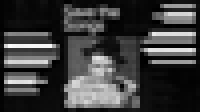State of the Logos Network: May 2025
Your roundup of recent developments from the Logos community and ecosystem
Logos


Cultivating community
In the last State of the Logos Network, we spoke of ramping up our efforts to build a strong, aligned, and highly participatory community around our vision for the future of human governance.
We’re already starting to see the fruits of these initiatives, as community members have stepped up and started to contribute on various fronts. This is just the beginning. We need more of you to bring your creativity, passion, and technical skills to the cause.
There are ways to get involved in the “Contribute” channel in Discord, or you can post ideas for initiatives on the Logos Forum.
Logos Campaigns
Save the Songs: Decentralise the Internet Archive’s Music Collection
The Logos community rallied behind the Internet Archive at the end of May. The digital library is facing a $621 million lawsuit from major record labels over its efforts to digitise increasingly rare music. Logos stands with the Internet Archive and all similar efforts to make knowledge universally accessible.


Logos IRL
Logos Circles
Logos Circles are a major new way for us to bridge the digital divide, make personal connections, and grow our tribe. We’re bringing our ideas and technologies to folks on the ground via various pop-up hubs around the world and hoping the community will spin up new Logos Circles of their own.
The first Logos Circle was in Lisbon, Portugal, on 4 June. A crowd of more than 25 occupied The Block Lisboa, including locals, the city’s expat community, and those from further afield looking to pirate ideas for future Logos Circles back home.
After a lively discussion, several winnable issues emerged: how can we increase the number of green spaces in Lisbon and protect them from invasive species? How can we build a verifiable news source for the people of Lisbon to stop the epidemic of fake news influencing people's choices and opinions?
The meetup also inspired us to unite with an existing project to start improving the lives of real people. On Sunday 8 June, we’ll be joining Arroze Studios’ weekly Digital Detox Sessions to aid their local maintenance and construction projects. If you’re in Lisbon this weekend, come show your support. More info.
We already have the second Circle planned for Brno, Czech Republic, on 12 June. Register your interest now.


A Logos Circle meetup in Los Angeles, California, is also in the early planning phase for a still-to-be-confirmed date. Keep your eyes on the Discord channel for more information.
If you want to help us spread our message and tech via your own local Logos Circle, hop into Discord and let us know. You can rely on us for planning, best practices, and promotional support.
Zuitzerland
Logos representatives were on the ground in Zuitzerland, a pop-up city initiative hosted by Logos allies from Zuzalu. The event was an opportunity to strengthen relationships and develop strategies for how our aligned projects can support one another.
Logos cofounder and coauthor of Farewell to Westphalia, Jarrad Hope, gave a fascinating fireside chat about Logos' vision and the opportunities presented by overhauling our governance systems. Watch it here.
Codex’s Guru and Logos’ Sterlin also gave a presentation titled “Build the Exit with Us” – a demonstration of the Logos technology stack with examples of its usage in action.


Parallel Society Festival
We’re still in the planning stages for the next Parallel Society Festival. However, if you already know you’ll be there, reserve your spot now.


Owl Explains Crypto Summit
Logos legal expert Agata appeared on a roundtable discussion focused on the importance of privacy in terms of decentralised finance and global commerce titled “When We Need Secrets” at the Owl Explains Crypto Summit:


Czech Crypto Week
Web3 Privacy Now Prague meetup: Waku’s Vaclav and Codex’s Leonardo appeared on a panel on building open-source privacy-preserving and censorship-resistant systems on 29 May.
ProtoLayers Builder Conference: Vaclav took part in the “Privacy in the Surveillance Age” panel and presented how Waku and Status Network use the Rate-Limiting Nullifier protocol to mitigate spam on 31 May.


Operators
We’ve updated the Logos Operator GitBook – you can now earn an Operator by making high-value contributions to our movement. We won’t be doing any mass minting events in the future, so get involved, find an initiative that your skills are a good fit for, and start contributing.
Make sure to tell the community all about your contributions, too, so we can sing your praises in a future edition of State of the Logos Network.
Learning
X Spaces and Podcasts
Every Thursday, our X Spaces spotlight voices from aligned network state initiatives and provide the Logos community a venue to explore ideas underpinning the post-state-governance movement.
We’ve had some heavy-hitting guests last month discussing topics covered in Jarrad Hope and Peter Ludlow’s forthcoming book, Farewell to Westphalia:
What Comes After the Nation State? (with Timour Kosters of Edge City)
Cypherpunks as the New Enlightenment Philosophers (with Rachel Rose O’Leary of DarkFi)
Infrastructure for Exit (with Jessie and Dmitriy of Codex and Corey of Logos)
Limits of Blockchain-Based Governance (with Puncar, coauthor of How to DAO)
Exile and Exit in Cyberstates (with Veronika of Zuitzerland)
Jarrad and Corey also appeared on a Consensys live stream to present the Logos vision of a network state future. Watch it here.
Logos “Learn” series
Logos Press Engine started a new educational initiative in May. Our “Learn” series of articles aims to bring those curious about network states up to speed with the concept and the opportunities they present.
Read the first article, “What Is a Network State?” now, and expect “Why Build a Network State?” – the next in the Learn series – very soon.
Logos Press Engine is also looking for writers from the community. If you’re a wordsmith with something to add to the alternative governance conversation, tag the Discord user “0xbathang” in a message in the main chat. They’ll get you initiated into our scholars' inner circle.
Community shoutouts
Each month, we celebrate those community members stepping up and supporting our work, whether technical or helping to enrich our community in some other way.
A big thank you to:
- Xav – Joined the community a month ago. Already contributing to the Logos Design System. Legend.
- JosiahWarren for sparking lively debate and thoughtful contributions on the Logos Forum and offering their literary skills to the Logos Press Engine.
- Vaclav – Busy on all fronts. Spoke at the Web3 Privacy Now meetup in Prague, 3D-printed swag, seeded Logos into PizzaDAO’s Bitcoin celebrations, hosting Logos Circles Brno. And found time to present innovative applications of Logos tech on the Logos Forum:
- Podex – decentralised media hosting on Waku and Codex
- Tokenised community rewards app
- Everyone who showed up to the Lisbon Circle meetup – our movement is growing!
If you’re working on something that you’d like to get the community’s input on, tell us about it on the forum and post the link in Discord to get the right people’s attention.
Want your own community shoutout? Do something cool to advance our mission and tell us all about it!
Technology development
Waku
RLN progress
A new contract integration in nwaku replaces local Merkle tree syncing with a more efficient onchain model.
Status Community sharding
The team completed Phase 1 of community sharding for Status, enabling scalable, decentralised community infrastructure.
Scalable Data Sync example
A Scalable Data Sync (SDS) example was published on lab.waku.org, showcasing lightweight sync for browsers.
Improving documentation
Developer onboarding is being prioritised with proposed improvements to Waku documentation. Developers: you can look forward to a smoother introduction to Waku very soon.
Waku’s May monthly update provides a more detailed account of the team’s recent progress. If you’re a developer, get involved and build Waku with us.
Codex
Codex Student Programme
Codex launched a funded student internship programme, offering students the opportunity to work with the protocol and team and gain experience contributing to an open-source project. Learn more.


Video walkthrough and blog post
Getting started with Codex has never been easier – the team just released a new video walkthrough and blog post explaining how the Codex p2p network works and demystifying the basic protocol functionality.
Dev-focused demos and workshops
The team took part in several developer-focused and educational engagements over May:
- Running Codex Storage on Altruistic Mode (at the Validator School Workshop)
- Leo presented on Data Availability Sampling at ETHPrague
- Marina presented at ETHDam on the future of privacy protocols
- Guru gave a workshop on Codex during Zuitzerland
- Logos showcased Cyphershare, a decentralised file-sharing app built by Guru that uses both Codex and Waku. Learn more.
Decentralised storage tribe
The team launched the “Decentralised Storage Tribe”, a collective space on X for builders, researchers, and enthusiasts exploring the peer-to-peer storage protocols. It’s open to all, so join the community over there now.
Codex’s May monthly update provides a more detailed account of the team’s recent progress. If you’re a developer, get involved and build Codex with us.
Nomos
Whitepaper published
The Nomos Whitepaper is now public, providing an approachable overview of the project. Its design principles and architecture are explained, making it easy to understand the progress made by the team.
Sovereign Rollup example created
The first complete usage example of Nomos was fleshed out in the form of an example Sovereign Rollup. This example, which began to be implemented as a proof of concept last month, demonstrates the versatility of Nomos as an application platform. Learn more.
Cryptarchia updated
Specifications for Cryptarchia, Nomos consensus’ protocol, were updated to include the causal finality mechanism and details about node bootstrapping. These give better practical finality guarantees and make Nomos more resilient.
Nomos' May monthly update provides a more detailed account of the team’s recent progress. If you’re a developer, get involved and build Nomos with us.
We see the rise of network states as inevitable and need developers, designers, writers, and all forward-thinkers who care about new models of governance to help us shape what comes next. Contribute to our open-source projects on GitHub, craft and share our vision, or join the conversation on Discord. Be part of the next wave of governance innovation now.
Discussion
Logos
Logos
Logos
Logos
Logos
Logos
Logos
Logos
Logos
Logos
Logos
Logos
Logos